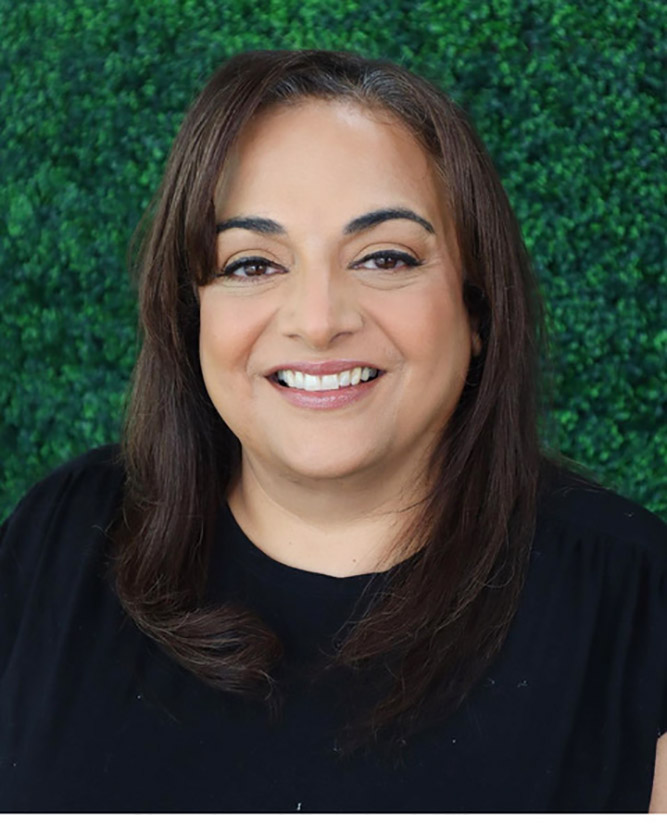By Surbhi Gogia,
Receiving a diagnosis of autism, Down syndrome, or other special needs for a child can be overwhelming for any family. It often feels isolating, leaving parents unsure of where to seek help. For immigrant families, particularly new mothers who are unfamiliar with local support systems and those who do not speak English, the challenge is even greater.
Pindi Mann, a trained professional at Reach Child & Youth Development Society, a non-profit organization, reassures these families: “You are not alone.” She emphasizes that numerous resources are available within the community and through government programs. Additionally, many South Asian professionals- including Punjabi-speaking teachers, pediatricians, social workers and therapists—are making significant contributions in this field, Pindi urges. “Reach out for help, and you will find it in many ways.”
As a family navigator (not coordinator) at REACH, Pindi plays a crucial role in helping families navigate the complexities of accessing support for their children. REACH offers a variety of services, including therapies, behavioral support, parent education programs and assistance in navigating the system for families with children who have special needs. Reach fundraises annually for the family navigator and parent to parent programs as they do not receive any government funding for these initiatives.
There was a need for Punjabi-language support at REACH during the COVID-19 pandemic. When a friend informed Pindi of this gap, she stepped in and volunteered to translate. Educated at UBC and trained as an Infant Development Consultant, Pindi has extensive experience working with children with special needs. Her impact was profound. Eventually, she was brought on as a family navigator and to coordinate a Punjabi Parent to Parent Group. What began as a support group for just eight families has now grown to 160 families across the lower mainland who have strong connections and support one another.

In her role, Pindi assists families in navigating available resources for therapies and funding. A significant part of her work involves connecting families through the Parent-to-Parent Support Group, where those with similar concerns share experiences via Zoom or in-person meetings. “This group provides a safe space where families can discuss challenges, celebrate achievements, and find reassurance that they are not alone,” she explains.
“Once you receive a diagnosis, you often don’t know where to start,” Pindi says. “We help find counselors, services, therapists, funding, and, when they are ready, introduce them to other families.”
Recognizing that families at various stages encounter unique challenges, Pindi thoughtfully introduces them to the group at the right moment. “A family with a newly diagnosed three-year-old may not relate to parents of teenagers discussing adulthood and independence. We ensure they are connected at the appropriate stage.”
REACH organizes virtual meetings where families interact directly with professionals to bridge the information gap. “A doctor’s clinic visit is often too short to address all concerns,” Pindi notes.’ These sessions allow families the time to ask professionals detailed questions.” Beyond medical concerns, these meetings cover practical topics such as obtaining a driver’s license for children with special needs and legal matters like setting up a will. The families also celebrate special holidays like Mother’s Day, Diwali and Christmas together. This provides families the unique experience of celebrating and making memories together in a safe and accepting environment.
Pindi’s initiative also extends to local gurdwaras. “During the summer, volunteers from Gurdwara Sahib Sukh Sagar organize a week-long camp for our kids. They also host programs at the gurdwara, providing families with a welcoming space,” Pindi explains. She hopes to expand this initiative to other gurdwaras and places of worship.
“Our community is incredibly generous, but there is still a lack of awareness about special needs,” she says. “We openly discuss important issues like drug abuse and domestic violence. Yet, special needs remain a topic in the shadows—a heartwarming reality where families seek love and acceptance.”
Pindi believes that increasing awareness is crucial. “Families turn to places of worship for peace, yet sometimes a parent is asked to take their child outside if he or she exhibits certain behaviors.” She urges the community to shift its perspective. “If you meet a parent of a child with special needs, listen, learn, and offer support. When a child behaves differently, be compassionate. Too often, people assume it is poor parenting, but every child has a story. As a community, we have the power to uplift and support these families.”
Pindi highlights several key resources available to families. Upon diagnosis, a Child and Youth Special Needs (CYSN) social worker is automatically assigned to provide information on funding and support. She encourages all parents to connect with their CYSN. Other resources include funding through Autism Funding, the At-Home Program, respite programs—which offers financial support to hire caregivers so parents can take a break—as well as the Disability Tax Credit, Variety Children’s Club, CKNW Kids’ Fund and many others.
Pindi and her team are always available to assist those unsure how to apply for these programs. Her message to families is one of encouragement and learning: “You are not alone. Educate yourself, explore your options, and never feel pressured to accept a service that doesn’t suit your child. If one approach doesn’t work, we will help you explore others.” Above all, Pindi wants families to reach out. “We can provide education, resources, and support—but we need to know you’re out there.” To connect with Reach’s services or to support their fundraising efforts, please visIt their website www.reachdevelopment.org



